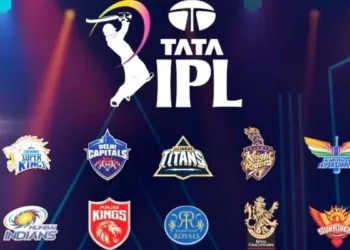In 2025, the advertising world witnessed one of its most talked-about controversies involving none other than cricket superstar Virat Kohli and Bollywood actress Genelia D’Souza. Their collaboration for an Aeroplane candy commercial, which featured a bold and suggestive theme, quickly became the center of a heated debate. The ad, intended to be playful and edgy, was deemed too controversial for television audiences and was subsequently banned from airing on TV channels.
This incident sparked widespread discussions about the boundaries of advertising, celebrity endorsements, and cultural sensitivities in India. In this blog post, we delve into the story behind the Aeroplane sex ad, the reasons for its ban, and the broader implications it holds for Bollywood, advertising, and public perception in 2025.
Table of Contents
The Making of the Aeroplane Sex Ad: Virat Kohli and Genelia D’Souza’s Bold Move
The Aeroplane candy ad featuring Virat Kohli and Genelia D’Souza was crafted to be a fresh, daring take on traditional candy commercials. Known for their charm and mass appeal, both celebrities were expected to bring a fun and flirtatious vibe to the campaign. The ad’s concept revolved around playful innuendos and a cheeky narrative that pushed the envelope of conventional advertising.
However, the ad’s suggestive undertones and the way intimacy was portrayed did not sit well with a significant portion of the audience and regulatory bodies. While the creators aimed to capture attention and spark conversations, the execution led to unintended backlash, highlighting the fine line between creativity and controversy.

Why the Aeroplane Sex Ad Was Banned from TV
The ban on the Aeroplane sex ad was primarily due to concerns over its explicit content and the potential impact on family audiences. Indian television, governed by strict content guidelines, often restricts advertisements that are perceived as too provocative or inappropriate for general viewership. The ad’s suggestive scenes and double entendres were seen as crossing these boundaries.
Regulatory authorities and broadcasting standards committees received numerous complaints, prompting a review that ultimately led to the ban. The decision underscored the ongoing tension between modern advertising strategies that seek to be bold and the cultural expectations of Indian society, which often favors conservative portrayals in mainstream media.
Public and Industry Reactions: A Mixed Bag of Opinions
The controversy surrounding the Aeroplane ad elicited a wide range of reactions. Some applauded the campaign for its boldness and for challenging outdated norms, viewing it as a step towards more progressive advertising. Fans of Virat Kohli and Genelia D’Souza appreciated their willingness to take risks and break stereotypes.
Conversely, many viewers and critics expressed discomfort and disapproval, arguing that the ad was inappropriate for television and could influence younger audiences negatively. Industry experts weighed in on the delicate balance advertisers must maintain between creativity and cultural sensitivity, emphasizing the importance of understanding the target audience.

Impact on Bollywood and Celebrity Endorsements
This incident has sparked a broader conversation about the role of celebrities in advertising and the responsibilities that come with their influence. For Bollywood stars and sports icons like Virat Kohli, endorsements are a powerful way to connect with fans, but they also come with scrutiny.
The Aeroplane ad controversy serves as a cautionary tale for brands and celebrities alike, highlighting the need for thoughtful content creation that respects societal values while still pushing creative boundaries. It also reflects the evolving landscape of Indian advertising, where global trends meet local sensibilities.
FAQs
Q1: Why was the Aeroplane sex ad featuring Virat Kohli and Genelia D’Souza banned from TV?
The ad was banned due to its explicit content and suggestive themes, which were deemed inappropriate for family audiences and violated broadcasting guidelines.
Q2: How did the public react to the Aeroplane ad controversy?
Reactions were mixed; some praised the boldness and creativity, while others criticized it for being too provocative for mainstream television.








